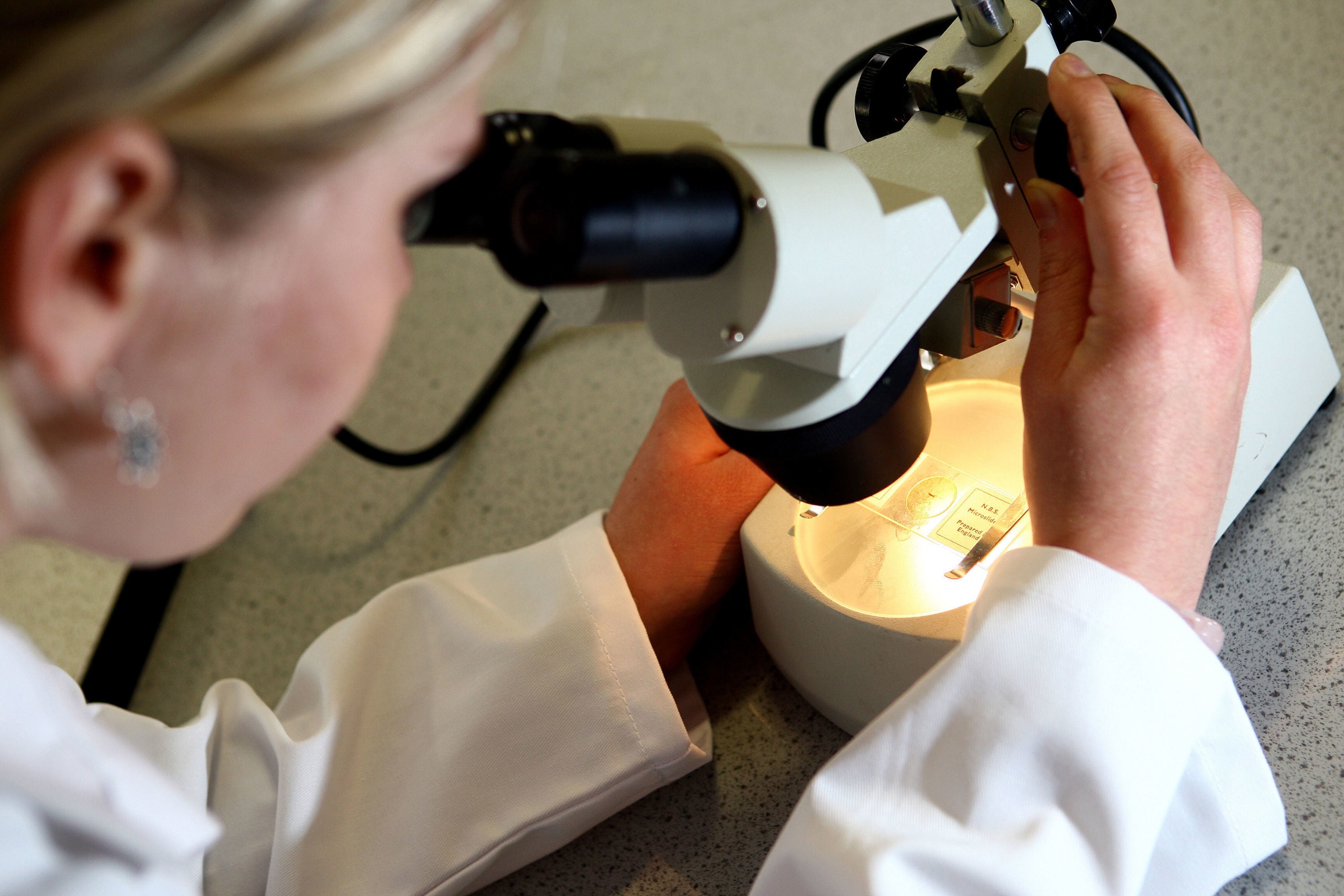Cancer referrals hit record-breaking 2.7 million after pandemic slump
Some 30,000 people have not yet started treatment due to the pandemic, one NHS chief says

Almost 3 million people were referred for cancer checks in the past year, record-breaking NHS data reveals, after figures suggested the pandemic saw numbers plummet in 2020.
According to the health service, the number of patients receiving treatment for the disease has also risen by 2,000 since the start of the Covid-19 pandemic.
Meanwhile, referrals for suspected cancer remained at around 116 per cent of pre-pandemic levels even during the peak of the Omicron wave, data from NHS England and NHS Improvement shows, and rose overall from 2.4 million to more than 2.6 million.
Around 315,000 patients started treatment compared with 313,000 before Covid-19 struck, they added.
Dame Cally Palmer, national cancer director for NHS England, said there were still 30,000 people who have not yet started treatment due to the pandemic, but that the latest figures suggested progress was being made.
“We are going further and faster than ever before in our ambitions to diagnose more cancers at an earlier stage so that we can save more lives,” she said.
“We have seen record numbers of people coming forward for checks in the last year, but we know there are still at least 30,000 who haven’t started treatment due to the pandemic, so it’s vital that we keep these referral rates high.”
In order to meet the increasing demand for cancer checks, the NHS said it has expanded its services’ diagnostic capabilities across the country in a range of ways.
Facilities such as one-stop shops for tests, mobile clinics and cancer symptom hotlines are helping to ensure people are diagnosed and treated as early as possible, the health service said.
Professor Peter Johnson, NHS England national clinical director for cancer, said: “We know the pandemic meant that at first we saw fewer patients, but in the last year GPs have been referring people for investigation in record numbers and have been working hard to make sure people with worrying symptoms can be seen. The NHS has continued to prioritise cancer care throughout the pandemic.”
It comes after MPs warned that Covid-related disruption means more people will not have cancer diagnosed until it has reached a later stage, when it is harder to treat.
In a report earlier this month, the Health and Social Care Committee said 3 million fewer people in the UK were invited for cancer screening between March and September 2020.
And between March 2020 and March 2021, 326,000 fewer people in England received an urgent referral for suspected cancer.
The Omicron wave also saw more cancellations of vital cancer treatments, “indicating the NHS is still not able to access sufficient Covid-free treatment capacity to safeguard treatments and address the backlog”, the MPs said.
Charities have welcomed this year’s increase in referrals but warned of the “devastating” impact of the pandemic on cancer care, and urged the government to tackle the “chronic” problem of NHS understaffing in its 10-year cancer plan.
Minesh Patel, head of policy at Macmillan Cancer Support, said: “It is reassuring to see record numbers of people coming forward with cancer symptoms for these life-saving checks.
“However, people living with cancer are often missing out on crucial care as a result of chronic NHS understaffing.
“To avoid putting further pressure on hardworking doctors and nurses, it’s vital the government includes steps in the upcoming 10-Year Cancer Plan to grow the number of cancer professionals so that people living with cancer receive the quality and timely care they desperately need.”
Ian Walker, executive director of policy, information and communications at Cancer Research UK, said: “We know that the pandemic has had a devastating impact on cancer services and cancer waiting times were being missed before the pandemic struck. It’s very encouraging to see an increased number of people being referred for cancer checks.
“But it’s vital that the efforts of NHS staff are bolstered in the government’s forthcoming 10-year Cancer Plan.”
Sajid Javid, the health secretary, said: “The pandemic put unprecedented pressure on the NHS and it is positive to see more people coming forward for treatment and record numbers of people receiving life-saving cancer checks.
“Our upcoming 10-year cancer plan that will lead Europe in cancer care, along with our record investment to cut waiting times and the introduction of the health and social care levy, will help us continue our mission to tackle the Covid backlogs.”
Subscribe to Independent Premium to bookmark this article
Want to bookmark your favourite articles and stories to read or reference later? Start your Independent Premium subscription today.

Join our commenting forum
Join thought-provoking conversations, follow other Independent readers and see their replies